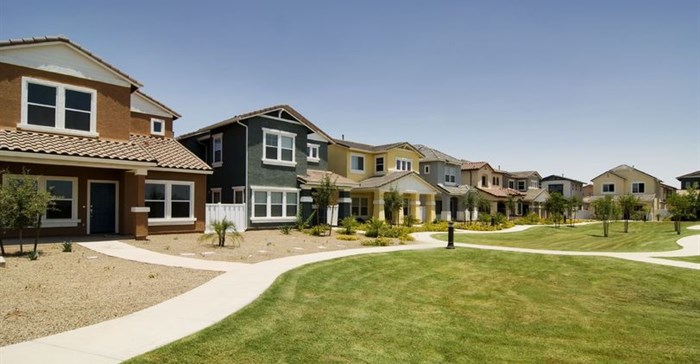
Top stories




Energy & MiningGlencore's Astron Energy gears up with new tanker amidst Sars dispute
Wendell Roelf 16 hours


More news



















Logistics & Transport
Uganda plans new rail link to Tanzania for mineral export boost







So says Andrew Schaefer, MD of national property management company Trafalgar, who notes: “The latest figures from Airbnb indicate that there are more than 43,000 ‘hosts’ in SA who let space in their homes for an average of 19 nights a year and make about R25,000 annually by doing so. But there are many who have found that they can make that amount and more every month, by letting Airbnb apartments in high-demand holiday destinations and commercial centres.
“It is thus not surprising that there are now many ST complexes in Johannesburg, Cape Town and Durban where there is a near-constant daily or weekly turnover of Airbnb visitors – who are effectively short-term tenants - in apartments and townhouses that are not ever occupied by their owners but have been specifically acquired and equipped as Airbnb units.
“It is also not surprising that it has proved very difficult for the bodies corporate of ST schemes – and the home owners’ associations (HOAs) of affected estates – to put a stop to this activity, even though other owners and long-term tenants frequently complain about conduct rules being breached by the short-stay tenants and their visitors, the security of the complex being compromised by letting so many strangers in and out, and the additional maintenance that lifts and other common property may require because of the higher volume of users.”
In some cases, he says, bodies corporate have tried to invoke local authority bylaws regarding bed-and-breakfast (B&B) establishments. In Cape Town, for example, the bylaws prohibit the establishment of a B&B in any block of flats, and stipulate that where a B&B is established in a primary or holiday residence, the proprietor must live on the property and may not let more than three bedrooms to paying guests – or have more than six paying guests at a time.
“However, judging by the number of Cape Town apartments listed on Airbnb, the owners clearly don’t think that these bylaws apply to them.”
In other cases, bodies corporate have tried to amend their conduct rules to restrict and even prevent short-term letting in their ST schemes. “But while the Sectional Titles Schemes Management Act (STSMA) does provide for them to make such changes by special resolution*, they have often not been able to secure the number of votes necessary to do so – especially if there are many owners in the complex already profiting from letting through Airbnb.
“In addition, we are finding that even when they can pass a special resolution to make a change to their conduct rules, different offices of the Community Schemes Ombud Service (CSOS) around the country are inconsistent in approving such changes.”
Consequently, says Schaefer, most ST schemes where high volumes of Airbnb visitors are regarded as a problem are now concentrating on enforcing the legal measures that are already in place as regards letting, and on beefing up their security systems.
“The STSMA says that anyone occupying a unit in an ST scheme is bound by the conduct rules of that scheme, and, in terms of the prescribed management rules for ST schemes, it is the owner’s responsibility to see that all tenants, short or long term, comply. And if the conduct rules provide for the imposition of fines when rules are broken, the owner will also be responsible for paying these.
“Meanwhile, the Rental Housing Act stipulates that no premises can be let for any amount of time without a lease, and that if these premises are in an ST complex, the landlord must ensure that the tenant receives a copy of the conduct rules as an annexure to that lease.”
In addition, he notes, ST owners are required in terms of the STSMA to notify their body corporate every time the occupancy of a unit changes. “This is a provision that most owners who are letting through Airbnb have simply ignored until now, but bodies corporate are starting to insist on it – and to fine owners who do not comply or whose tenants ignore the conduct rules.
“In order to address the security issue, some bodies corporate are now also installing CCTV and high-tech security systems that prevent occupants from gaining entry to the complex until the body corporate has at least been made aware of them. In one complex we manage, for example, fingerprints needed for the biometric access system are only added during office hours Monday to Friday, and prospective occupants have to sign for a copy of the conduct rules at the same time. Thus, anyone arriving unannounced at night or over a weekend simply can’t get in.”
*Conduct rules can only be created or amended if the body corporate adopts a special resolution by voting at a general meeting or by written agreement. For a special resolution to be proposed at a meeting, a quorum of members of the body corporate must be present or represented by proxy. For it then to be passed, at least 75% of the votes represented (calculated in both value and number) must be in favour. Alternatively, a special resolution to amend or create a conduct rule can be passed if 75% of all members of the body corporate agree in writing.